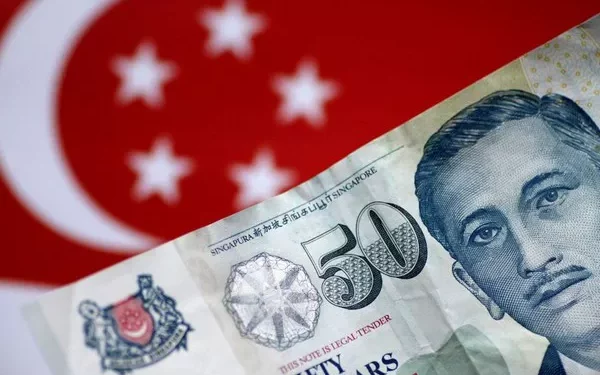In an increasingly globalized economy, consumers often face the decision of choosing which currency to use when making purchases or payments, especially when dealing with international transactions. A common dilemma arises between paying in U.S. Dollars (USD) or Singapore Dollars (SGD). While the choice might seem straightforward at first glance, several financial considerations can impact the decision, from exchange rates and currency fluctuations to fees and the economic outlook. This article aims to provide a comprehensive analysis of the factors to consider when deciding whether to pay in USD or SGD, helping consumers make informed financial decisions.
Understanding Exchange Rates and Their Impact
The Role of Exchange Rates
Exchange rates play a critical role in determining the cost of transactions between different currencies. The exchange rate is the price at which one currency can be exchanged for another, and it fluctuates based on various factors, including economic conditions, interest rates, inflation, and geopolitical events. When deciding whether to pay in USD or SGD, understanding the current exchange rate between these two currencies is crucial.
If the exchange rate is favorable, paying in a foreign currency might result in cost savings. Conversely, an unfavorable exchange rate could lead to higher costs. For example, if the USD strengthens against the SGD, paying in USD might be more expensive for a consumer holding SGD. Conversely, if the SGD strengthens, paying in USD might become more advantageous.
Currency Fluctuations and Timing
Currency fluctuations can significantly impact the cost of international transactions. Exchange rates are not static; they change continuously based on market dynamics. These fluctuations mean that the value of your money can vary from one day to the next. Therefore, timing plays a crucial role in deciding whether to pay in USD or SGD.
If you anticipate that the SGD will weaken against the USD in the near future, it might be prudent to pay in USD sooner rather than later. On the other hand, if you expect the SGD to strengthen, waiting to pay in USD could result in savings. Monitoring currency trends and forecasts can help you make more informed decisions.
Transaction Fees and Conversion Costs
Foreign Transaction Fees
When making international payments, particularly when using credit or debit cards, financial institutions often charge foreign transaction fees. These fees typically range from 1% to 3% of the transaction amount and can add up quickly, making your purchase more expensive. Some credit cards, however, offer no foreign transaction fees, which can be beneficial if you frequently make international purchases.
If you choose to pay in USD while holding SGD, your bank or card issuer may convert the currency at the time of the transaction, and the foreign transaction fee could apply. Conversely, if you pay in SGD, you might avoid this fee, depending on the payment method and the policies of your financial institution.
Dynamic Currency Conversion (DCC)
Dynamic Currency Conversion (DCC) is a service offered by some merchants that allows consumers to pay in their home currency (SGD in this case) instead of the local currency (USD). While this might seem convenient, DCC often comes with hidden costs. The exchange rates used in DCC are typically less favorable than the rates offered by banks or credit card companies, and additional fees may be applied.
Consumers should be cautious when offered DCC and should compare the exchange rate provided by the merchant with the rate offered by their bank or card issuer. In many cases, it might be more cost-effective to decline DCC and pay in the local currency (USD), allowing your bank to handle the conversion at a potentially better rate.
Economic Conditions and Inflation
The Economic Outlook of the U.S. and Singapore
The economic conditions in the United States and Singapore can influence the decision to pay in USD or SGD. A strong economy generally supports a stronger currency, while a weaker economy can lead to depreciation. Therefore, understanding the economic outlook for both countries is essential.
The U.S. economy is one of the largest in the world, and the USD is considered a global reserve currency. This status means that the USD is generally more stable and less susceptible to extreme fluctuations compared to other currencies. However, the U.S. economy is not immune to risks such as inflation, interest rate changes, and geopolitical events, all of which can affect the value of the USD.
Singapore, on the other hand, has a smaller, highly developed economy that is heavily reliant on trade and finance. The SGD is considered a relatively stable currency, but it can be influenced by regional economic conditions, trade flows, and the performance of major trading partners such as China and the U.S. The Monetary Authority of Singapore (MAS) manages the SGD through a managed float system, which allows for some flexibility in response to economic changes.
Inflation and Purchasing Power
Inflation rates in the U.S. and Singapore can also impact your decision. Inflation erodes the purchasing power of a currency, meaning that the same amount of money will buy fewer goods and services over time. If inflation is higher in one country than the other, the value of that country’s currency may decrease relative to the other.
For example, if inflation in the U.S. is rising faster than in Singapore, the USD may weaken against the SGD. In such a scenario, holding and paying in SGD could be more advantageous. Conversely, if Singapore experiences higher inflation, the SGD may weaken, making USD payments more favorable.
Monitoring inflation trends and economic forecasts can provide insights into potential currency movements and help you make more informed decisions.
Considerations for Frequent Travelers and Expats
Currency Hedging for Frequent Travelers
For frequent travelers between the U.S. and Singapore, currency hedging strategies can be a valuable tool. Currency hedging involves taking measures to protect against adverse currency movements, which can help manage costs and reduce the impact of currency fluctuations on your finances.
One common hedging strategy is to hold funds in both USD and SGD accounts, allowing you to pay in the currency that is most advantageous at the time. This approach can help you avoid the need for frequent currency conversions and reduce the impact of unfavorable exchange rates. Some financial institutions offer multi-currency accounts that facilitate this type of strategy.
Another approach is to use forward contracts or currency futures, which allow you to lock in a specific exchange rate for future transactions. These financial instruments are more complex and typically used by businesses, but they can also be an option for individuals with significant currency exposure.
Managing Finances as an Expat
Expats living in Singapore or the U.S. may face additional challenges when deciding which currency to use for payments. For example, if you earn income in SGD but have expenses in USD, currency fluctuations can impact your purchasing power and overall financial well-being.
Expats should consider the following strategies to manage their finances effectively:
Multi-Currency Accounts: Holding accounts in both USD and SGD can provide flexibility and reduce the need for constant currency conversions. This approach allows you to manage your finances more efficiently and take advantage of favorable exchange rates when needed.
Regular Monitoring: Keep a close eye on exchange rates and economic conditions in both countries. Understanding the factors that influence currency movements can help you make more informed decisions about when and how to convert your funds.
Fixed vs. Variable Expenses: Consider which of your expenses are fixed (e.g., rent, utilities) and which are variable (e.g., entertainment, travel). For fixed expenses, it may be beneficial to lock in exchange rates through forward contracts or other financial products, while variable expenses can be managed through careful timing and monitoring of exchange rates.
Tax Implications: Be aware of the tax implications of holding and converting currencies. Different countries have different tax laws related to foreign income, capital gains, and currency conversions. Consulting with a tax advisor who specializes in expat finances can help you navigate these complexities.
The Psychological Aspect of Currency Choices
The Comfort of Familiarity
For many consumers, the decision to pay in USD or SGD may be influenced by psychological factors rather than purely financial considerations. The comfort of paying in a familiar currency can lead individuals to choose their home currency, even if it may not be the most cost-effective option.
See Also: What Currency Should I Use in Singapore?
Familiarity with a currency can reduce anxiety and make transactions feel more straightforward. For example, if you are more accustomed to thinking in SGD, you might prefer to pay in SGD, even if the exchange rate is slightly less favorable. This comfort can provide peace of mind and simplify budgeting, especially when dealing with large or frequent transactions.
Perceived Value and Spending Behavior
Perceived value and spending behavior also play a role in currency decisions. Studies have shown that consumers may perceive the value of a product or service differently depending on the currency in which it is priced. For example, a price of $100 USD might feel more expensive than its equivalent in SGD, even if the actual cost is the same after conversion.
This psychological effect can influence spending behavior, leading consumers to choose the currency that feels more affordable or provides a sense of better value. Being aware of these biases can help you make more rational decisions based on the actual costs involved rather than perceptions.
Practical Tips for Making Currency Decisions
Compare Exchange Rates and Fees
Before making a payment in USD or SGD, take the time to compare exchange rates and fees. Use online currency converters to check the current rate and compare it with the rate offered by your bank or card issuer. Remember to factor in any foreign transaction fees, conversion fees, or DCC charges that may apply.
Consider the Payment Method
Different payment methods can have different implications for currency conversions. Credit cards, debit cards, bank transfers, and cash all have their own sets of fees and exchange rates. Consider which method offers the best combination of convenience and cost-effectiveness for your specific situation.
For large transactions, it may be worth exploring alternative payment methods such as wire transfers or using online platforms that offer competitive exchange rates. For smaller, everyday transactions, a credit card with no foreign transaction fees might be the most convenient option.
Plan Ahead for Large Purchases
If you know that you will need to make a large payment in the future, such as for tuition, medical bills, or a major purchase, plan ahead by monitoring exchange rates and timing your conversion to take advantage of favorable rates. In some cases, it may be beneficial to convert funds in advance and hold them in a multi-currency account until the payment is due.
Use Technology to Your Advantage
There are numerous tools and apps available that can help you monitor exchange rates, compare fees, and make informed currency decisions. Some apps allow you to set alerts for specific exchange rates, so you can take action when the rate reaches your desired level. Additionally, online platforms and services often offer better exchange rates and lower fees than traditional banks, making them a valuable resource for currency conversions.
Conclusion
Deciding whether to pay in USD or SGD is not a one-size-fits-all decision. It requires careful consideration of various factors, including exchange rates, fees, economic conditions, and personal circumstances. By understanding these factors and applying the practical tips outlined in this article, you can make informed decisions that optimize your financial outcomes.
Whether you are a frequent traveler, an expat, or simply someone making occasional international purchases, taking the time to analyze the costs and benefits of different currency options can lead to significant savings and a better overall financial strategy. Ultimately, the choice between USD and SGD should be guided by a combination of financial logic and personal comfort, ensuring that you make the best decision for your specific needs and circumstances.
Related Topics:

























